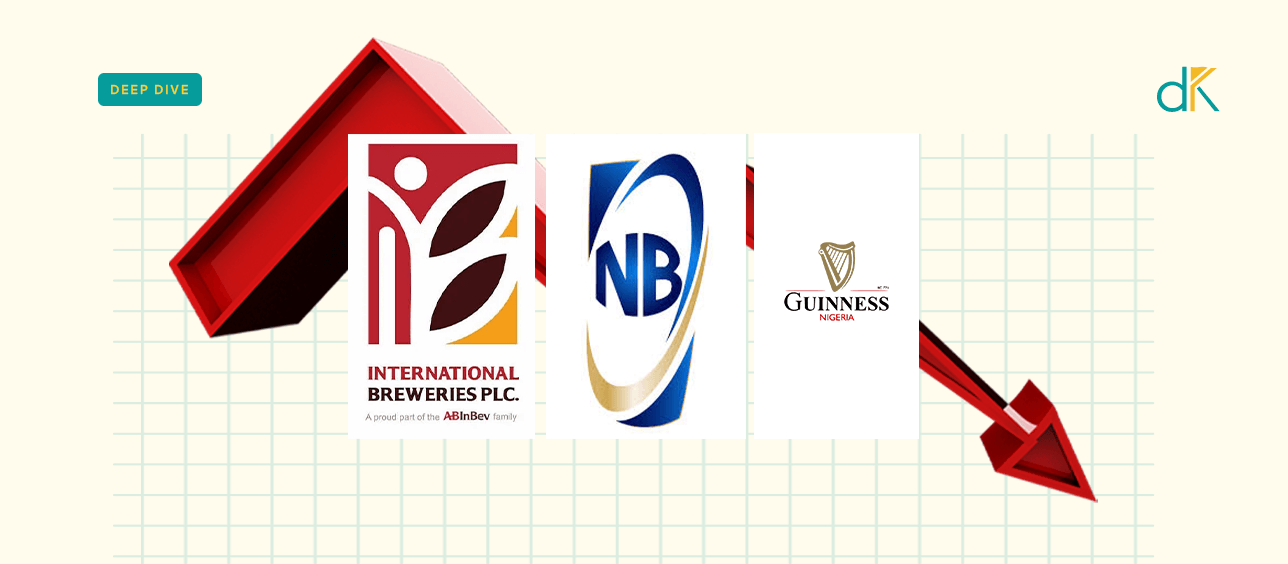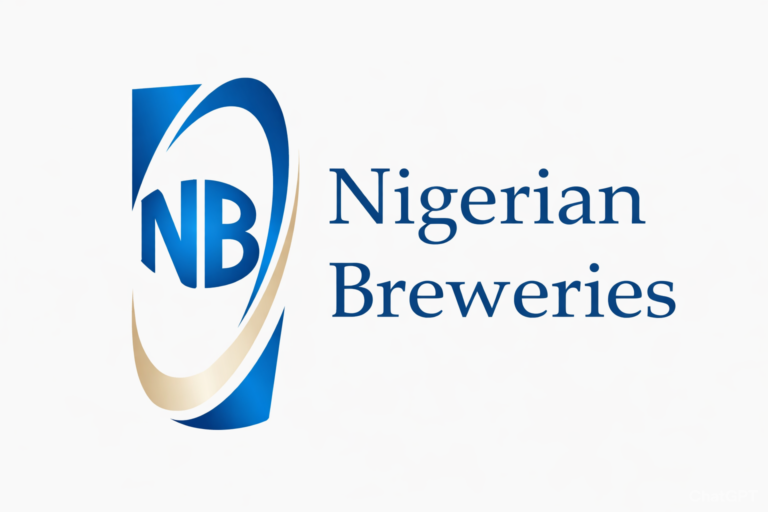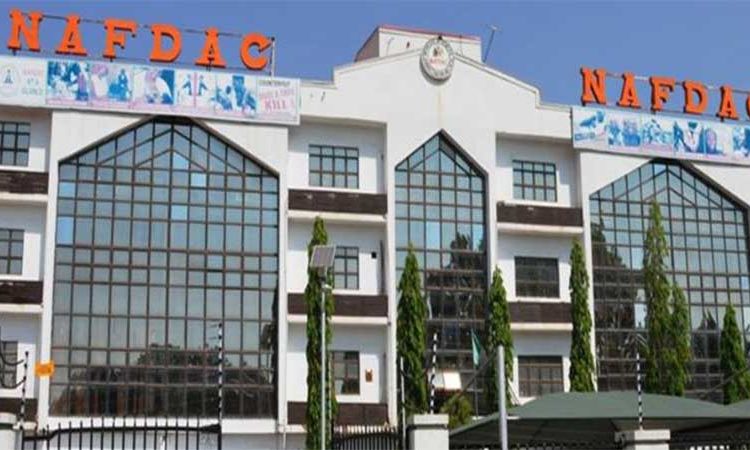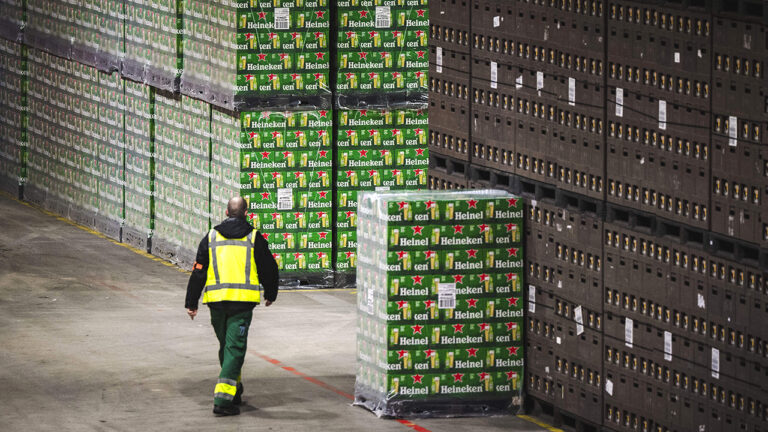A Worrisome Trend: Persistent Losses Despite Revenue Increase
In the second quarter of 2024, major beverage companies listed on the NGX continued to suffer losses despite significant revenue increases. Financial statements from International Breweries, Nigerian Breweries, and Champion Breweries reveal a 72.1% rise in total revenues to N157.96 billion compared to the same period last year. However, losses also increased, except for Champion Breweries, which reported a marginal profit.
Detailed Company Performances
Nigerian Breweries reduced its after-tax loss in Q2 2024 from N36.7 billion in Q2 2023 to N32.34 billion. However, the first half of 2024 saw an increase in loss after tax from N47.34 billion in H1 2023 to N84.32 billion, marking a 78.1% rise. The company’s cost of sales more than doubled from N85.66 billion to N173.95 billion, while net finance costs in Q2 2024 were N62.91 billion, a decrease from N76.90 billion in Q2 2023. Increased administrative and distribution expenses and a rise in raw materials and consumables costs by 118% significantly contributed to these losses.
International Breweries reported a Q2 2024 pre-tax loss of N61.81 billion, an improvement from N89.35 billion in Q1 2024, but an increase from N37.31 billion in Q2 2023. Despite revenue growth, high finance costs, administrative expenses, and raw materials costs drove losses. Notably, a realized foreign exchange loss of N82.62 billion in Q2 2024, compared to a gain of N7.97 billion in Q2 2023, and a 195.4% rise in interest payments on borrowings exacerbated the financial strain.
Guinness Nigeria Plc, despite a 30.5% revenue increase, recorded a loss of N54.76 billion for the fiscal year ending June 30, 2024, up 201.5% from N18.16 billion in FY 2023. Significant increases in net finance costs and the cost of sales were key factors. Net finance costs soared by 117.8% to N99.08 billion, while the cost of sales increased by N56.73 billion. Additionally, raw materials costs rose by 39.82%, and investment in advertising and promotion increased by N7 billion.
Macro-Economic Factors
The recent losses of Nigerian beverage companies reflect broader economic challenges affecting various industries. The Nigerian economy has faced significant disruptions following reforms such as fuel subsidy removal and foreign exchange market unification introduced by President Bola Tinubu. These measures led to unprecedented inflation rates and extreme volatility in the foreign exchange market, impacting business costs and profitability.
Side Notes I
Fuel Subsidy
Previous Nigerian governments have kept fuel prices relatively low by paying a part of the landing cost of petrol imports into the country. President Tinubu on assumption into office in 2023 ended that payments after it gulped almost $10 billion in 2022. This singular action increases the pump price of petrol from N250/litre to almost N750.
Unification of the forex market
Prior to June 2023, the CBN operated different currency markets (official and parallel markets) where businesses purchased FX. This scenario occurred because the CBN operated different currency markets (official and parallel markets), where businesses could purchase FX. As a result, the CBN fixed the exchange rate on the official market at N462/$, while businesses could access the parallel market (black market) with a floating rate, making it more available but expensive. This led to arbitrage and round-tripping as the difference between the official market rate and that of the parallel market reached almost N300.
By merging both markets, the CBN allowed the law of demand and supply to influence the exchange rate in the market, weakening the naira to the current FX rate.
Impact of Economic Reforms
The Central Bank of Nigeria’s aggressive interest rate hikes to combat inflation have raised borrowing costs, further squeezing profit margins. Companies with foreign currency-denominated loans have faced substantial foreign exchange revaluation losses. Additionally, the weakness of the Naira has increased the cost of imported raw materials and machinery, leading to higher production costs and reduced profit margins. By adopting these recommendations, beverage companies can improve their financial resilience and enhance their prospects for sustainable growth in the Nigerian market.
Future Outlook
Despite government initiatives aimed at economic recovery, such as single-interest loans for MSMEs and large manufacturers, the beverage industry’s need for substantial capital remains unmet. The organized private sector’s call for the CBN to halt monetary policy tightening highlights the ongoing challenges in accessing affordable capital. With no clear signs of declining inflation or a stronger Naira, the immediate future of the beverage industry remains uncertain.
Side Notes II
MPR or interest rate
The Monetary Policy Rate (MPR) or interest rate is the amount charged by a lender for any debt and is usually set as a percentage of the principal amount borrowed. Central banks use interest rates to regulate activities in the broader economy to stimulate growth or slow it down.
Finance cost
Finance cost is the interest businesses incur in borrowing funds from banks or any other source. When the benchmark interest rate set by central banks is high, the cost of borrowing (finance cost) increases and vice versa.
Recommendations
To navigate these challenging economic conditions, Nigerian brewers can consider the following strategies:
- Hedging Against Foreign Exchange Risks: Companies should implement robust foreign exchange risk management strategies to mitigate the impact of currency fluctuations on their finances.
- Cost Optimization: Focus on cost reduction initiatives, particularly in procurement and production processes, to manage rising raw material and operational costs effectively.
- Local Sourcing: Increase the use of locally sourced raw materials to reduce dependence on imports and cushion against foreign exchange volatility.
- Innovation and Product Diversification: Invest in research and development to introduce new products and diversify the product portfolio to cater to varying consumer needs and preferences.
- Strategic Partnerships: Form alliances with local and international partners to share resources, technology, and expertise, which can help in scaling operations and reducing costs.
- Advocacy for Policy Support: Engage with government bodies and industry associations to advocate for favorable policies, such as reduced interest rates and supportive trade policies, to create a more conducive business environment.
Drinkabl Deep Drive aims to unpack key issues and trends in Nigeria’s beverage industry. Subscribe to our newsletter to for more insights.






